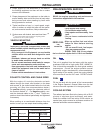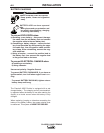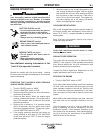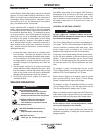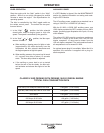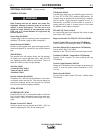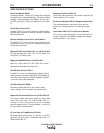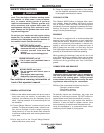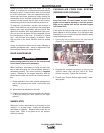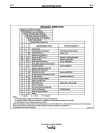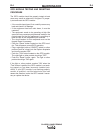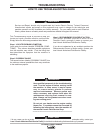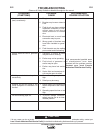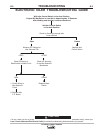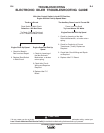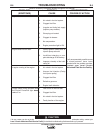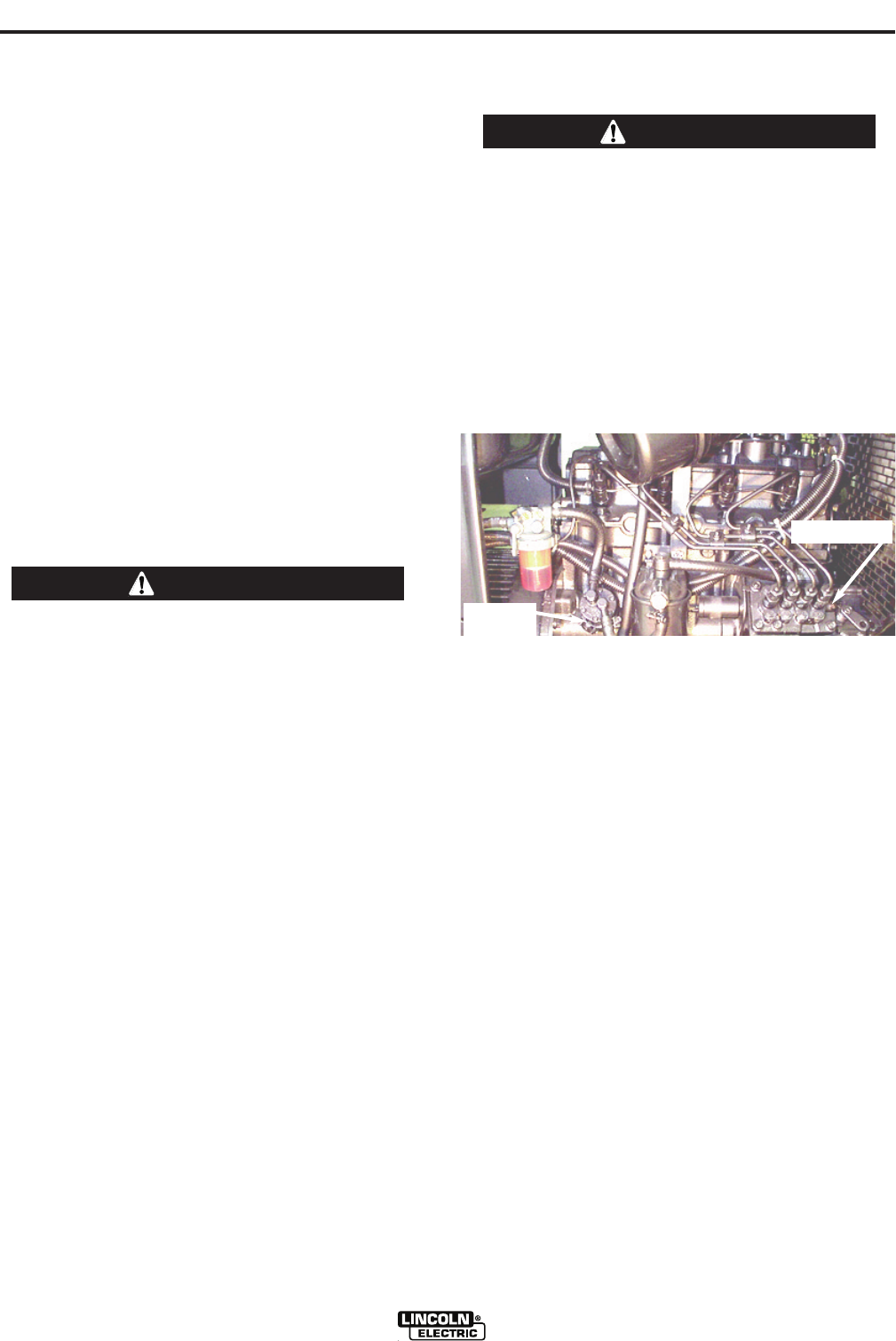
$ %+%%
Replace brushes when they wear within 1/4” of the
pigtail. A complete set of replacement brushes should
be kept on hand. Lincoln brushes have a curved face
to fit the commutator. Have an experienced mainte-
nance man seat these brushes by lightly stoning the
commutator as the armature rotates at full speed until
contact is made across the full face of the brushes.
After stoning, blow out the dust with low pressure air.
To seat slip ring brushes, position the brushes in
place. Then slide one end of a piece of fine sandpaper
between slip rings and brushes with the coarse side
against the brushes. With slight additional finger pres-
sure on top of the brushes, pull the sandpaper around
the circumference of the rings - in direction of rotation
only - until brushes seat properly. In addition, stone
slip ring with a fine stone. Brushes must be seated
100%.
Arcing or excessive exciter brush wear indicates a
possible misaligned shaft. Have an authorized Field
Service Shop check and realign the shaft.
#)$ %+%%
67@C65@:?86=64EC:42=H@C<@?E96:5=6CAC:?E65
4:C4F:E3@2C55:D4@??64EE9632EE6CJ
When installing a new battery or using a jumper bat-
tery to start the engine, be sure the battery polarity is
connected properly. The correct polarity is ?682E:G6
ground. Damage to the engine alternator and the
printed circuit board can result from incorrect connec-
tion.
Proper operation of the idler requires good ground-
ing of the printed circuit board, reed switch, and
battery.
Idler solenoid is activated for low idle.
If desired, the welder can be used without automat-
ic idling by setting the “Idler” switch to the “High”
position.
%$'#+*
Whenever routine maintenance is performed on this
machine - or at least yearly - inspect all nameplates
and labels for legibility. Replace those which are no
longer clear. Refer to the parts list for the replace-
ment item number.
',) % ) )&$ ,# *0*+$
')" %*% %
"66A7F6=4=62C@7@A6?7=2>6D@C2C4D2==@H
6?8:?6E@4@@=367@C6H@C<:?8@?E967F6=DJDE6>
.:A6FA2?JDA:==657F6=2?55@?@EDE2CE6?8:?6
F?E:=7F>6D4=62C
If the engine is running rough and you suspect air has
been trapped in the fuel system, (e.g. the engine was
allowed to run out of fuel) perform the following steps
using qualified personnel:
1. Loosen by two or three turns, the vent screw
(Figure D.1) on the fuel inlet connection.
,)
2. Operate the electric fuel pump by turning the
“Ignition” switch “ON” until fuel, free of air, flows
from the vent point. Tighten the vent screw.
3. Contact your Perkins Engine repair facility if prob-
lems persist.
#** R')" %*
,+ &%
.)% %
-6?E*4C6H
'C:>:?8
#6G6C



